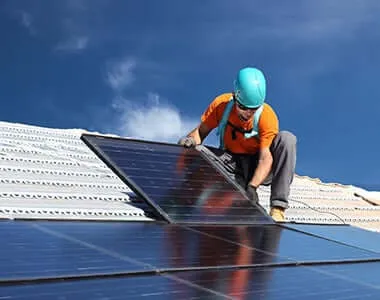Advanced Micro Inverter Technology for Enhanced Solar Energy Conversion Efficiency and Performance
Exploring Smart Micro Inverters The Future of Solar Energy
In the era of renewable energy, solar power has emerged as a leading solution to combat climate change and reduce reliance on fossil fuels. A crucial component of solar energy systems is the inverter, which converts the direct current (DC) produced by solar panels into alternating current (AC) usable by home appliances and the electrical grid. Among the various types of inverters available, smart micro inverters have garnered significant attention for their enhanced efficiency, flexibility, and advanced features. This article explores the benefits and functionalities of smart micro inverters, positioning them as pivotal technology in the solar industry.
What is a Micro Inverter?
A micro inverter is a small device installed on each solar panel, converting DC to AC at the panel level rather than using a central inverter for the entire array. This decentralization allows for improved energy production and system performance. In contrast to traditional string inverters, which can suffer from inefficiencies due to shading, orientation, or panel malfunctions, micro inverters ensure that each panel operates independently. This means that if one panel is underperforming, it does not significantly affect the output of others.
The Smart Advantage
The term smart in smart micro inverters refers to their integration with advanced technology and monitoring capabilities. These devices can communicate wirelessly, allowing homeowners and solar installers to monitor individual panel performance through a smartphone app or web portal. This real-time data offers valuable insights into energy production and system health, enabling proactive maintenance and immediate identification of issues.
One of the significant advantages of smart micro inverters is their ability to maximize energy harvest. By optimizing the output of each solar panel based on environmental conditions, such as sunlight exposure and temperature, these inverters can significantly enhance overall energy production. This optimization is particularly beneficial in scenarios where panels experience shading or are installed on uneven rooftops with varying orientations.
Increased Flexibility and Scalability
smart micro inverter

Another compelling feature of smart micro inverters is their flexibility in system design. Since each panel operates independently, homeowners are not restricted to a specific array size or configuration. This flexibility allows for easy expansion of solar systems. For instance, if a homeowner decides to add more panels in the future, they can effortlessly integrate them into the existing system without needing to replace the inverter.
Moreover, the modular nature of smart micro inverters makes them a suitable option for various installations, including residential, commercial, and even community solar projects. This adaptability enables a broader audience to benefit from solar energy, fostering a more extensive adoption of renewable technologies.
Enhanced Safety and Performance
Smart micro inverters also offer enhanced safety features compared to traditional inverters. In a conventional solar setup, high-voltage DC electricity runs through wiring, posing potential hazards during maintenance or emergencies. Micro inverters, on the other hand, convert power to lower-voltage AC at each panel, reducing risks associated with electrical shocks and ensuring a safer environment for both homeowners and installers.
Additionally, many smart micro inverters come equipped with built-in monitoring and diagnostic capabilities, enabling users to track system performance and receive alerts in case of any malfunction. This proactive approach to maintenance not only enhances system reliability but also prolongs the lifespan of the solar installation.
Conclusion
As the demand for renewable energy continues to grow, smart micro inverters are poised to play a crucial role in the evolution of solar technology. Their ability to optimize energy production, provide real-time monitoring, and enhance safety makes them an attractive option for homeowners and businesses alike. By enabling greater flexibility and scalability, smart micro inverters are paving the way for a more sustainable future, ensuring that solar energy remains a viable and efficient alternative in the global energy landscape. With advancements in technology and increasing awareness of environmental issues, the adoption of smart micro inverters is likely to rise, solidifying their place as a cornerstone of modern solar energy systems.
-
Navigating Off Grid Solar Inverter: From Use Cases to Trusted PartnersNewsAug.05,2025
-
Solar Edge String Inverter: A Wholesaler’s Guide to Inverter Technology SelectionNewsAug.05,2025
-
Microinverters: Revolutionizing Solar Energy UseNewsAug.05,2025
-
Future of Monocrystalline Solar Panel Efficiency: Latest Technological AdvancesNewsAug.05,2025
-
Solar Panels for House: A Complete Guide to Residential Solar EnergyNewsAug.05,2025
-
Panel Bifacial Performance in Snow and Low-Light ConditionsNewsAug.05,2025







